I used to be an industry transitioner. At that time, I worked in other industries for many years. I felt that my understanding of this industry was very limited, and I was not very optimistic about the prospects for development. Therefore, I started to enter a software testing training class, hoping to get more opportunities and development space.
In the training class, I learned the theoretical and technical knowledge of software testing, from the most basic testing principles to the application of testing tools and the management of testing processes. These are very necessary knowledge, but when I finished the training course, I didn't find a high-paying job in the first place.

In the process of my job hunting, I found that the enterprise valued my practical ability and experience more . Although I have learned various testing techniques, the ability without practice is meaningless to the enterprise. Therefore, I actively participated in some practical projects and internships, constantly learning and improving my testing skills, and gradually improved my practical ability through hard work.
In the second job I submitted, I successfully entered a software company. Although the salary was not very high, this experience was very helpful for my future career development. In the company's work, I actively improved my work efficiency and quality, learned more software testing techniques and management methods, and gradually expanded my skill range.
Later, after a period of learning and practice process, I started to get some better career opportunities. In these opportunities, I can get more salary and better development space. For my career development, these opportunities are very important, because they help me learn more about the industry and give me greater opportunities to do more things in the future.
In short, for industry transitioners, signing up for software testing training courses can indeed help you learn relevant knowledge and skills , but to become an excellent software testing engineer requires continuous learning and practice. Once you start on this path, you must have enough patience and determination, work hard continuously, accumulate experience and skills , in order to truly become a competitive software testing engineer.
Sometimes, the reason why you develop poorly is not because there is no opportunity, but because you are not ready, causing the opportunity to pass you by. This society is like this, no matter how unreasonable and unfair, but development opportunities will always be faced, it just depends on whether you are ready or not. If you really develop a real ability to impress people, maybe someone will ask you to be the president of a Fortune 500 company tomorrow. (of course this is a joke)
We all know that the demand for automated testing positions in major Internet companies is increasing day by day, but qualified test engineers in the market are scarce and will be hard to find ; on the other hand, a large number of test engineers are still engaged in the most basic work with meager salaries , eager to transform, eager to enter a major Internet company, but wandering and confused and not knowing which direction to choose.
In order to help everyone quickly build test thinking ability, win offers from major manufacturers as soon as possible, and grasp the right to speak in the workplace, my friends and I spent a period of time to organize and compile the following "Automated Test Engineer Learning Route" , hoping to bring you help and direction .
1. From entry to mastery of Python programming
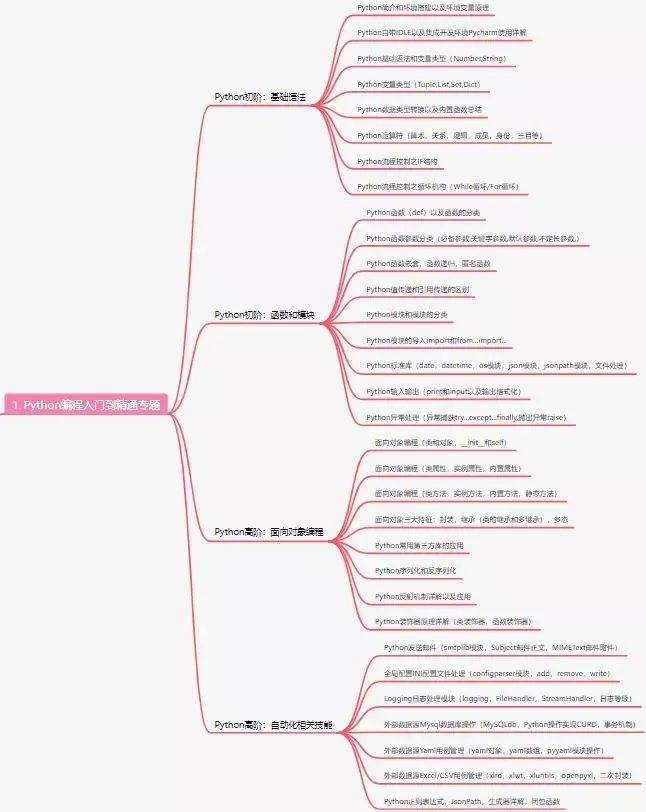
2. Interface automated testing
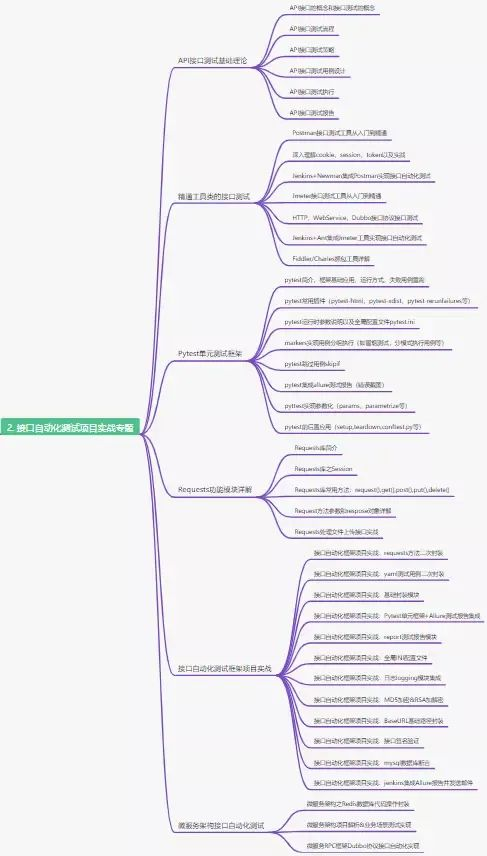
3. Web automated testing
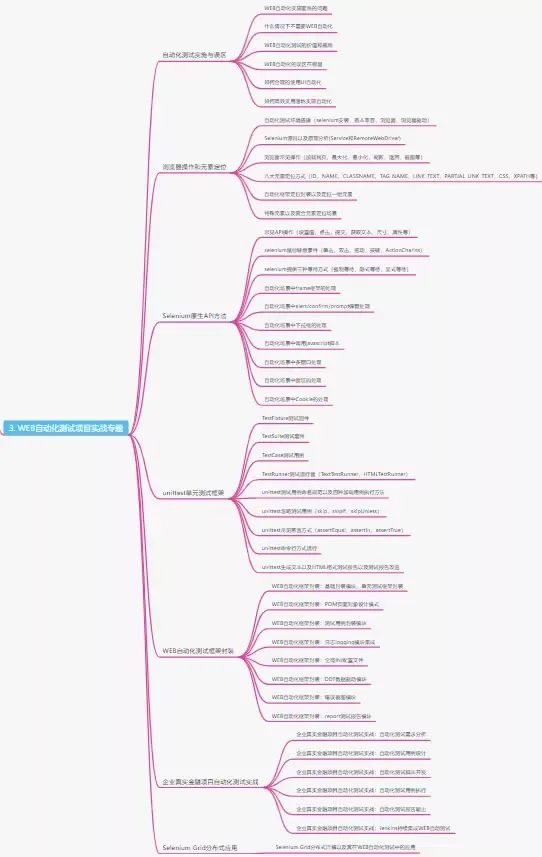
4. App automated testing

5. Front-end web page programming language
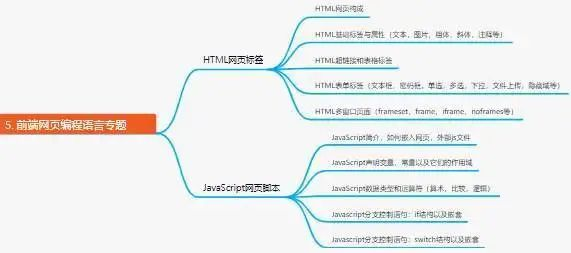
6. Test and develop DevOps system
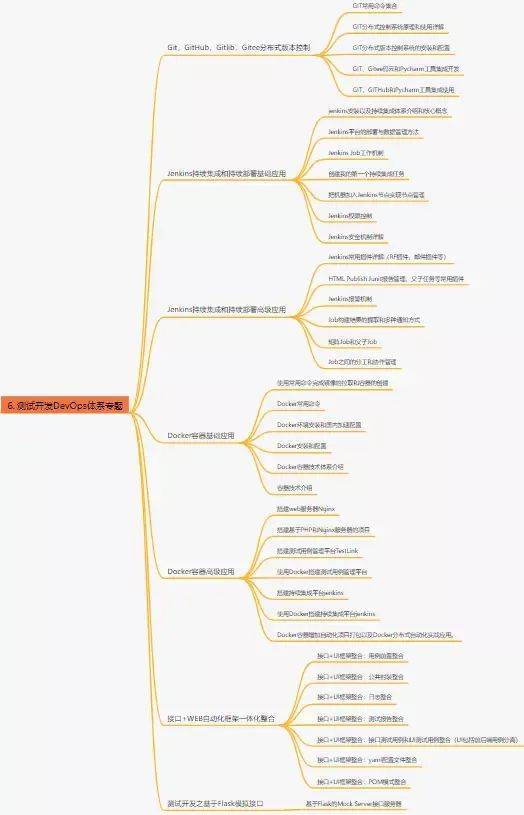
7. Resume preparation and interview skills for first-line manufacturers
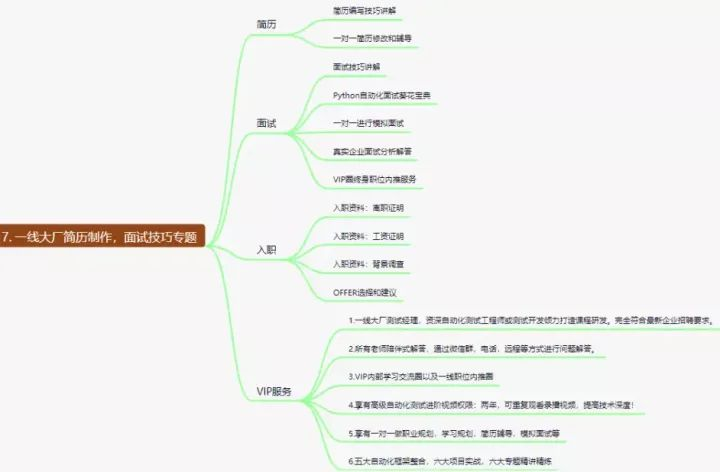
Eight, RobotFramework framework and HttpRunner
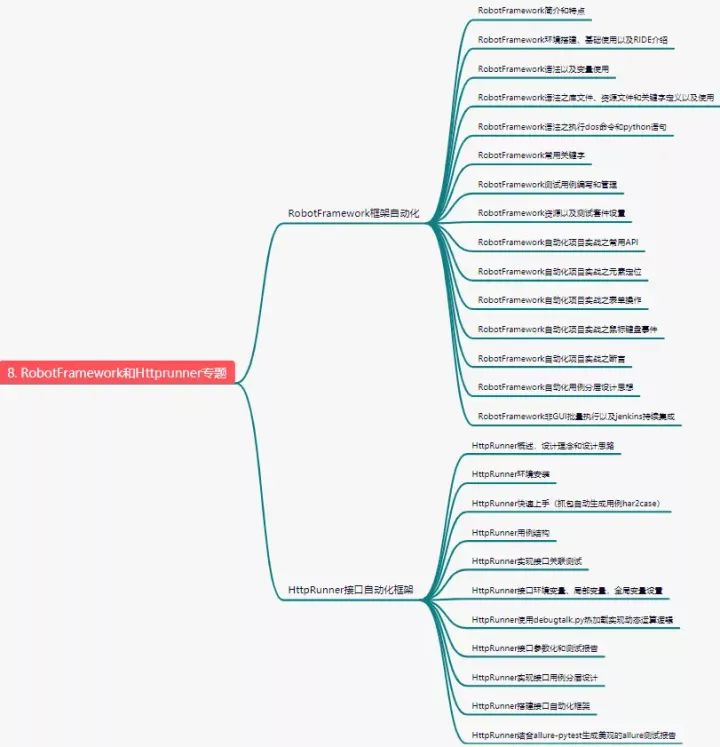
The above is a knowledge architecture diagram of the development direction of software testing engineers that I compiled for you. I hope that everyone can complete the construction of such a system in 3-4 months according to this system. It can be said that this process will make you miserable, but as long as you get through it. Later life will be much easier. As the saying goes, everything is difficult at the beginning, as long as you take the first step, you have already succeeded in half, and when you look back on this journey after completion, you will definitely feel a lot of emotion.
Why learn automated testing?
As a tester, are you still a little bit?
Same starting point, same 24 hours a day, why are your peers abandoning you?
It's also a probationary period, so why do some people become full-timers smoothly, while others are eliminated?
Working the same amount of time, why is it that others have been promoted and their salaries have been raised, while others are still at the front line?
The same job content, why do some people can't finish it even if they get off work overtime every day when everyone else is off work?
Many people seem to work hard, but most of them use tactical diligence to cover up strategic laziness, and lose at the technical level.
Whether a technician's career is successful or not, hard work and choice are equally important, but before that, technical clearance is the first threshold.
Otherwise, when opportunities come, you may not be able to seize them just right, and your efforts will only be low-level repetitions.
Is automated testing difficult?
The tool is not difficult, but when it comes to framework design and performance tuning, it is very difficult!
Some information found on the Internet can only barely get started, and I want to learn more, but I can't find a way to learn. If there is no professional guidance, most people can only do a little bit of it, half understanding, which is also the state of most testers in the market.
How to go from primary functional testing to advanced testing development to achieve the goal of technology improvement and salary improvement is a necessary stage for many primary testers. As someone who has experienced it, I have a deep understanding of the difficulties in the learning process.
During the learning stage, I am keen to collect and organize resources, and record the process from stepping on the pit to climbing the pit. I hope that I can record what I have learned, the techniques used in actual work, learning methods, experience, and some pitfalls I have stepped on. I also hope that you, who want to do automation, can avoid some detours through my sharing, and can form a set of own methods and apply them in practice.